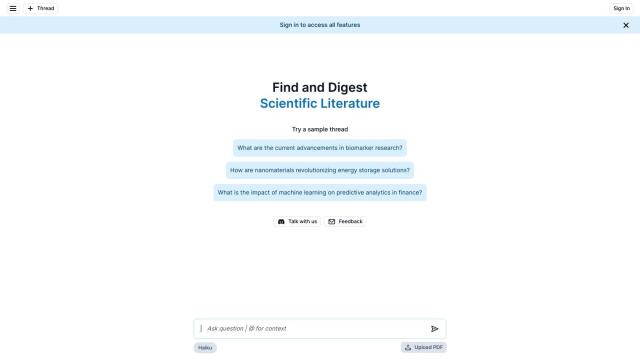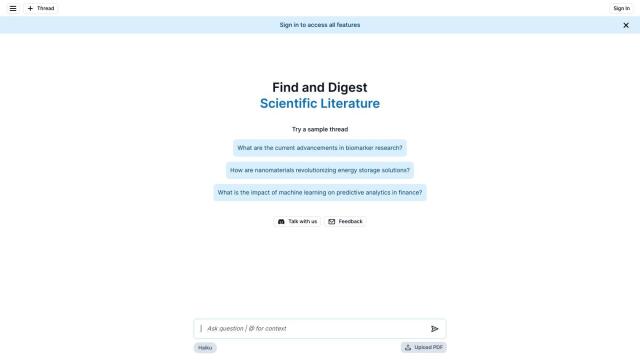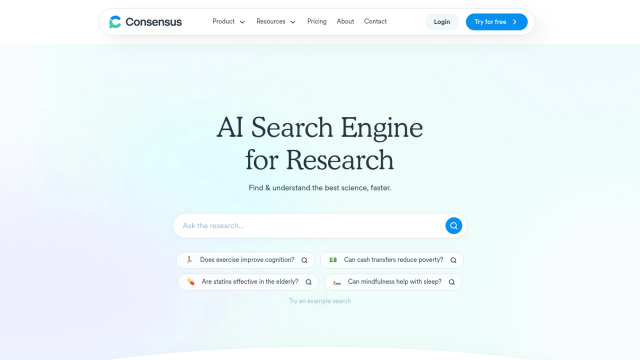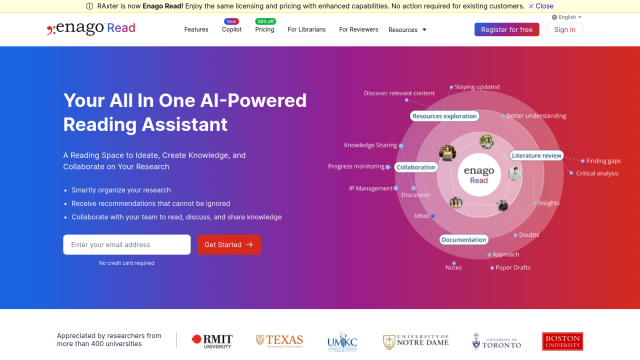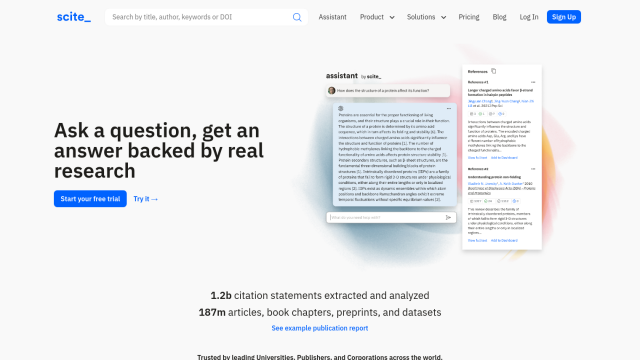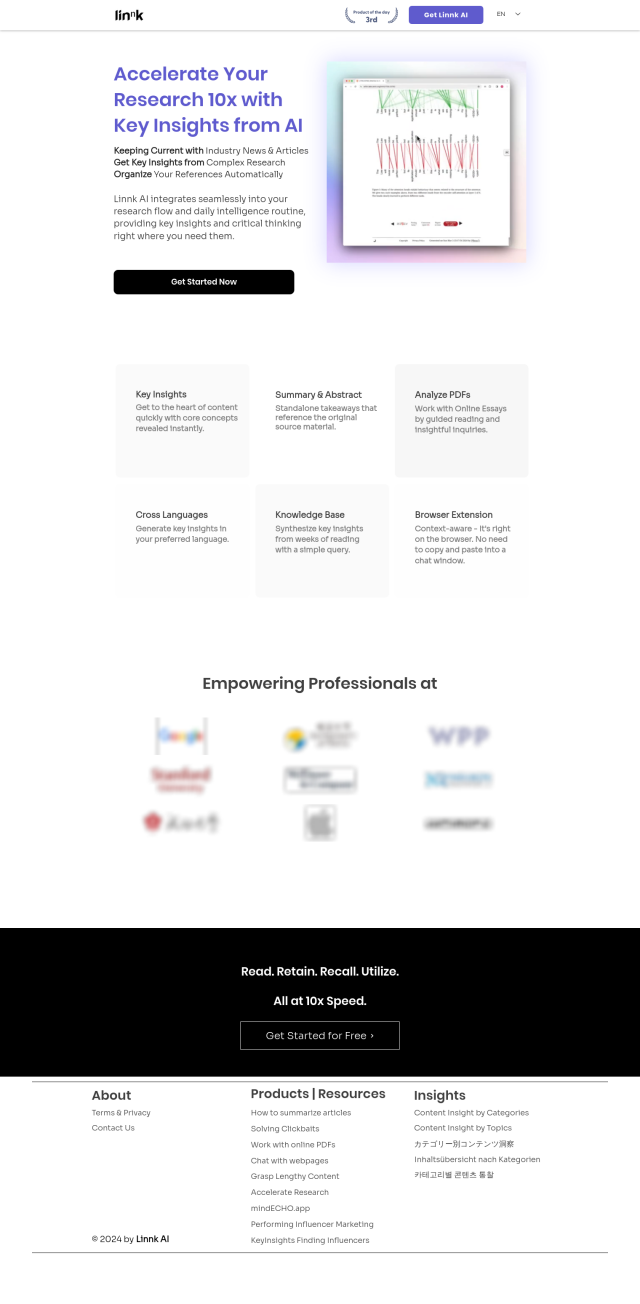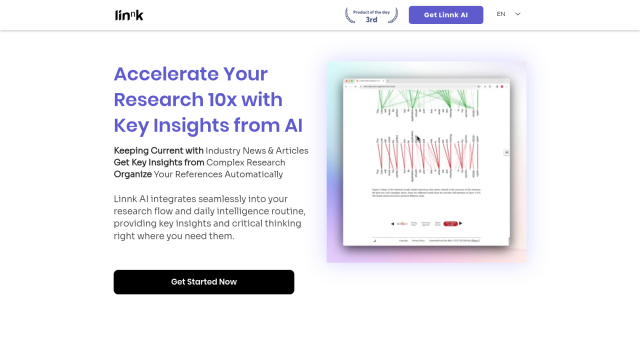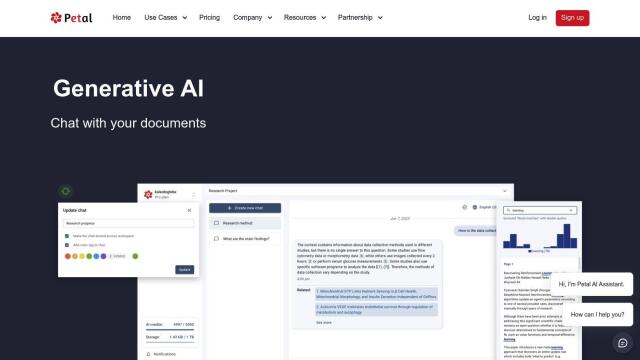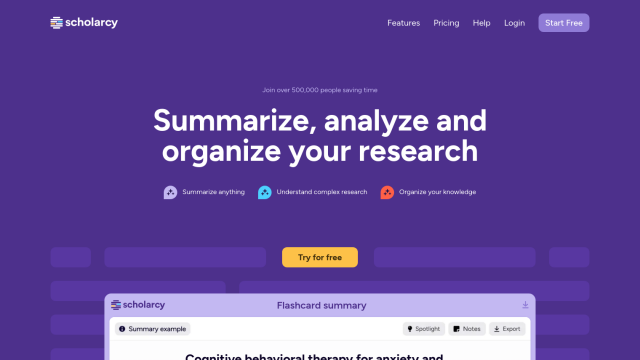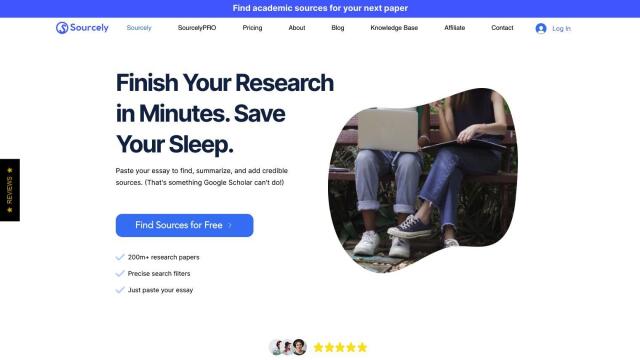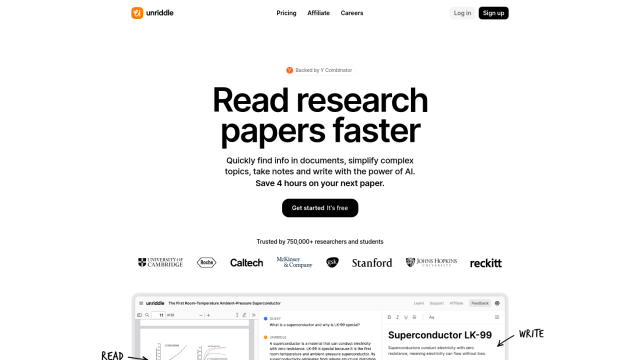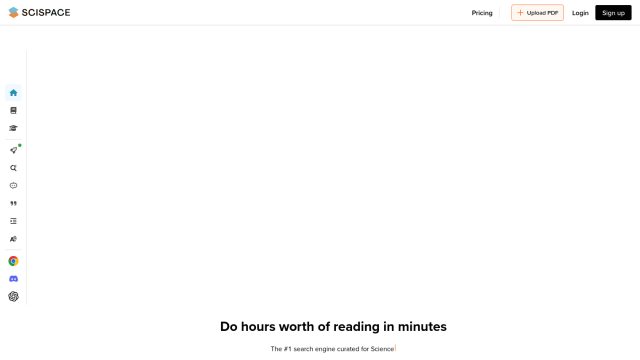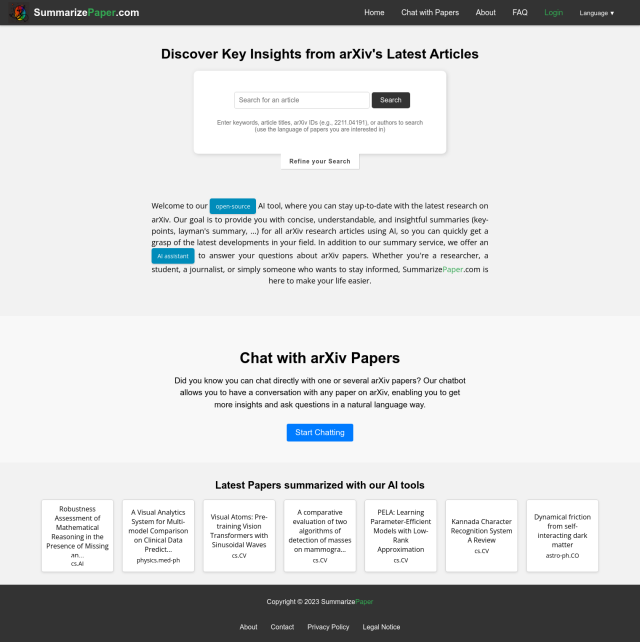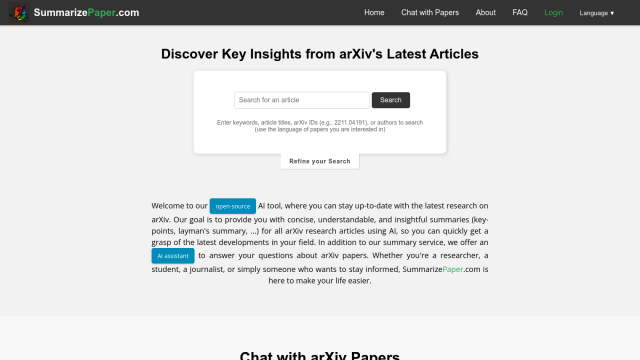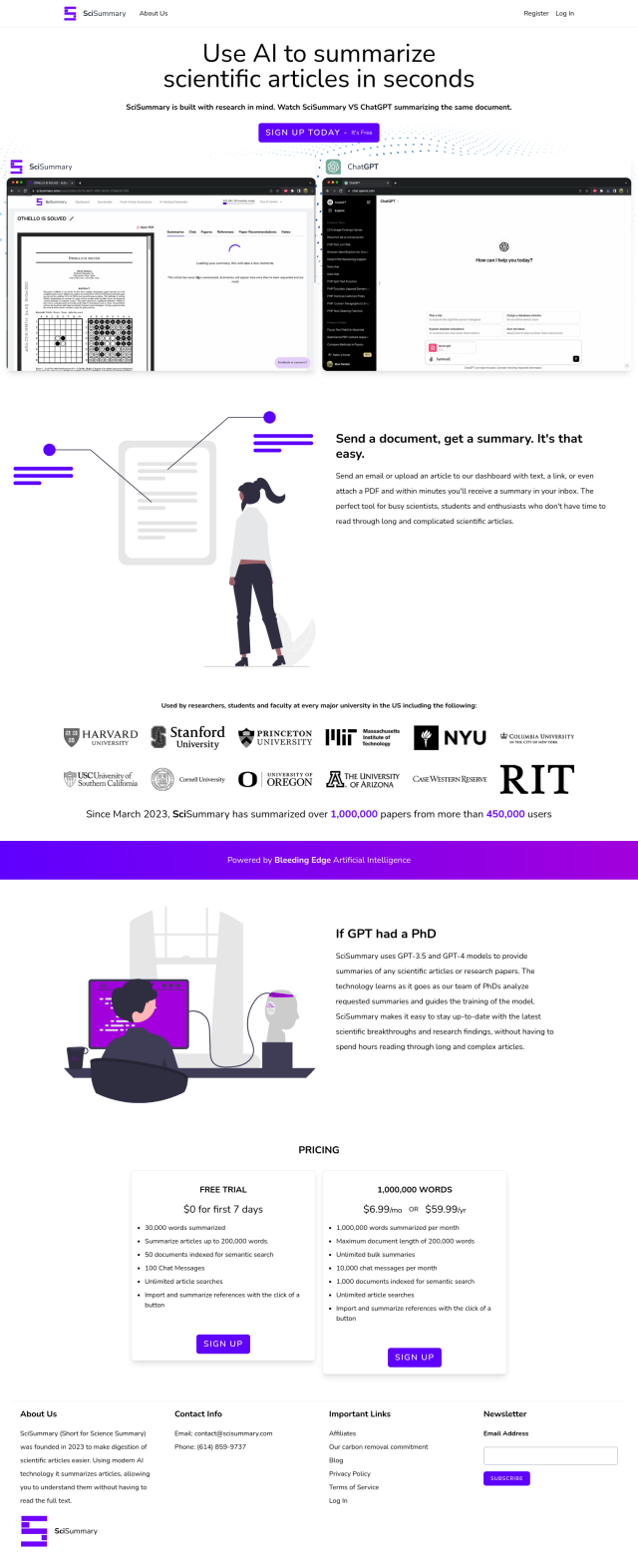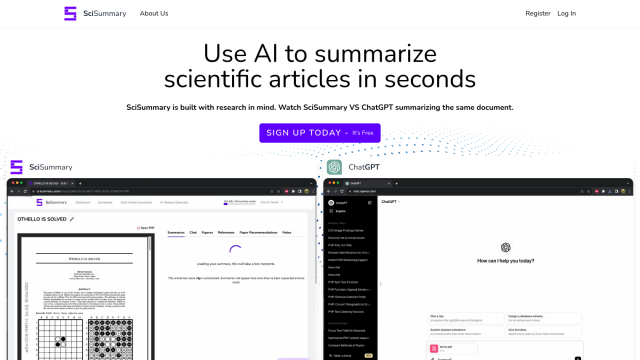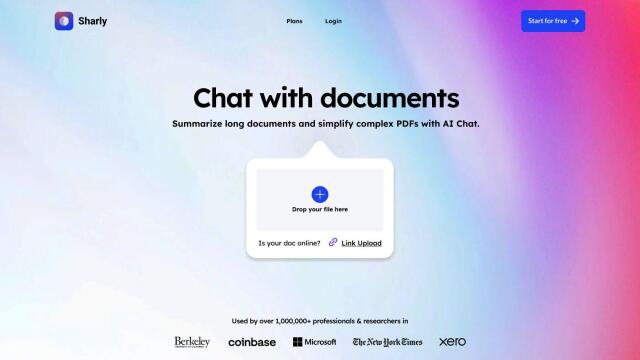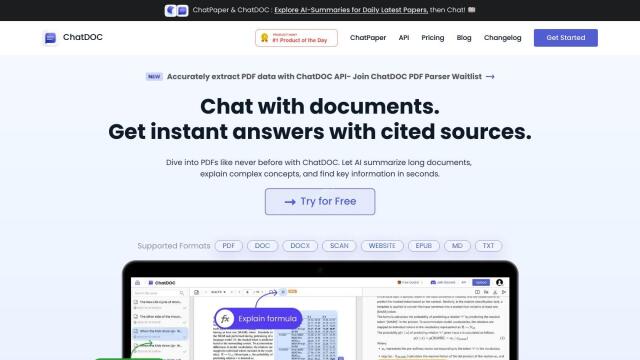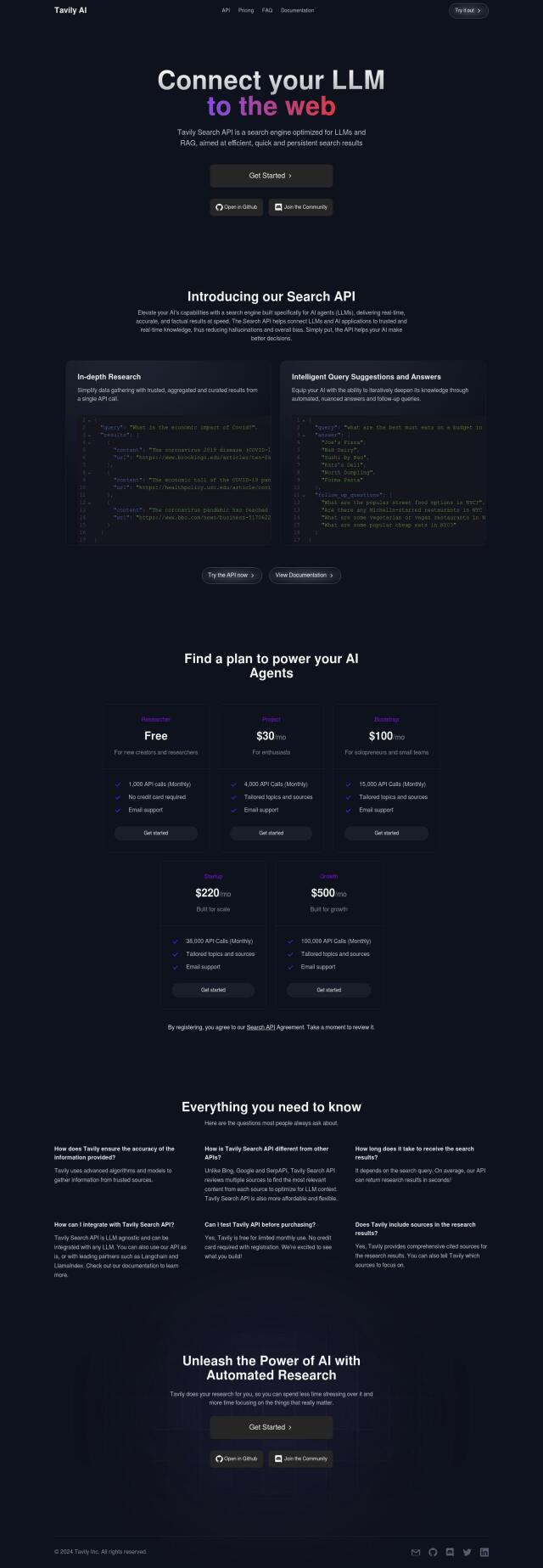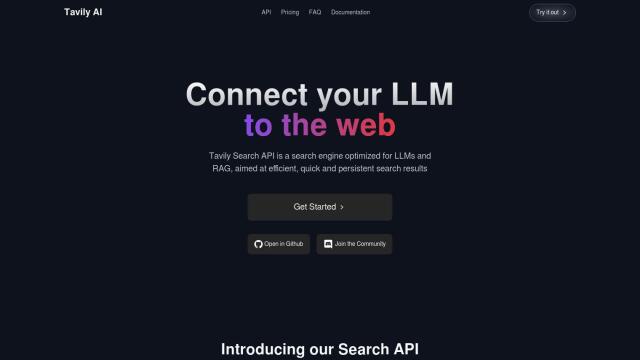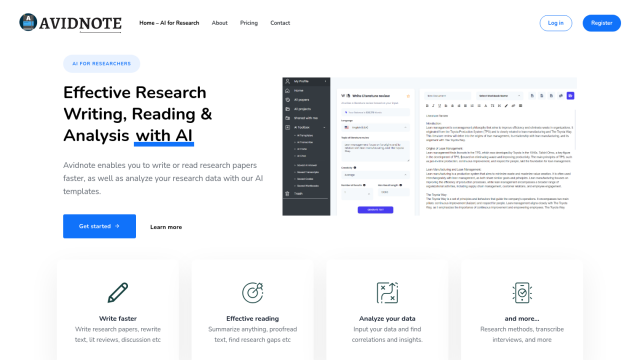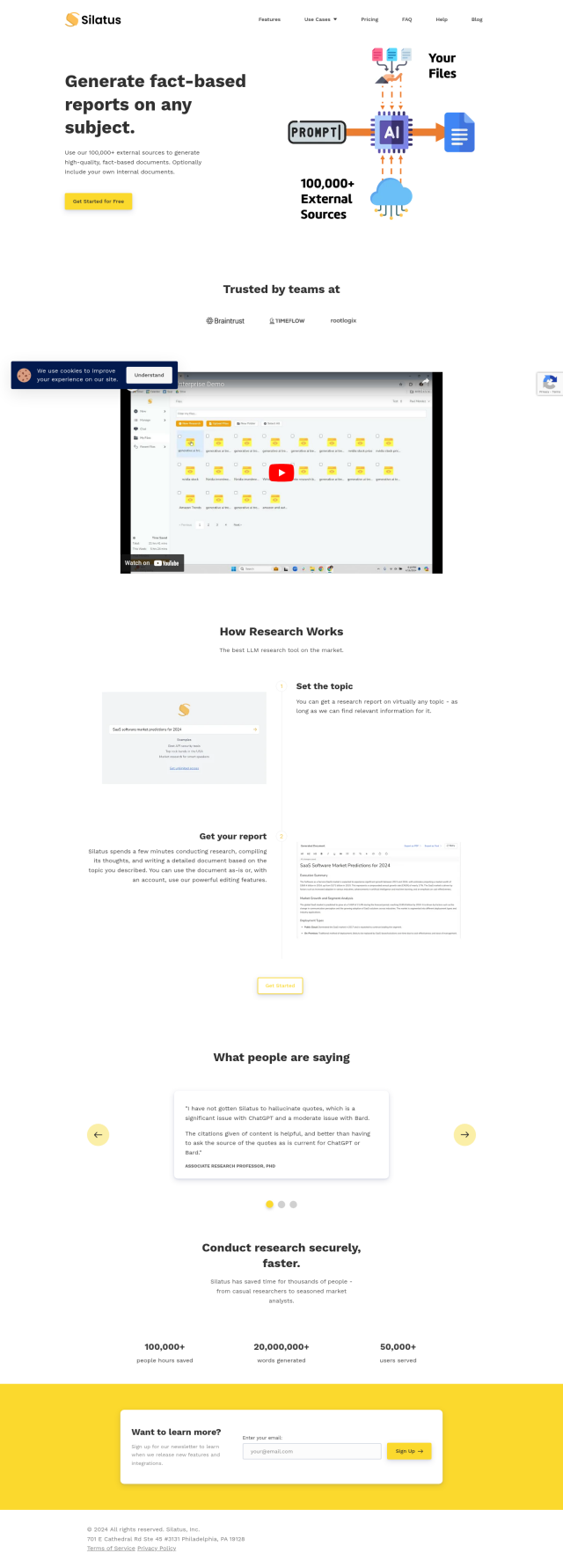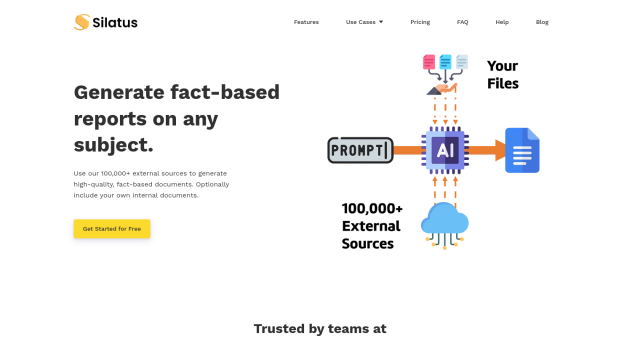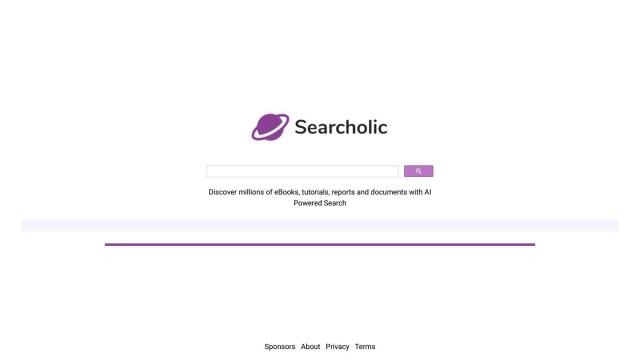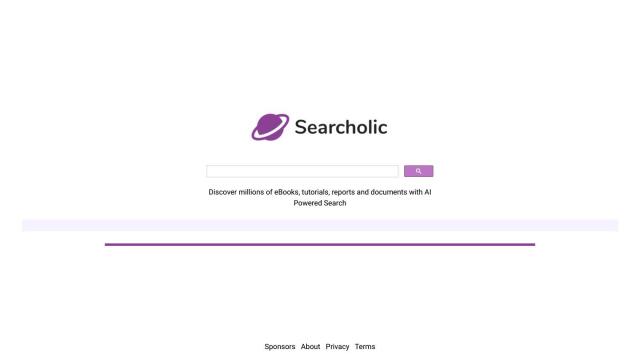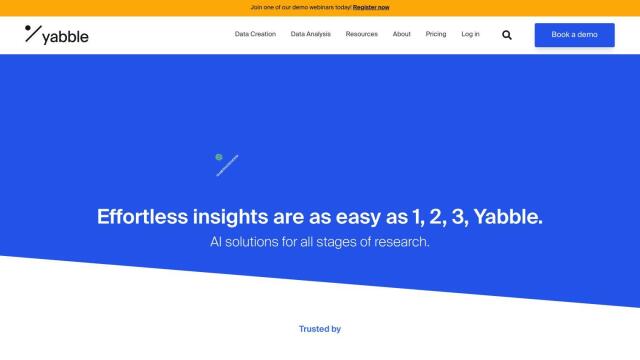
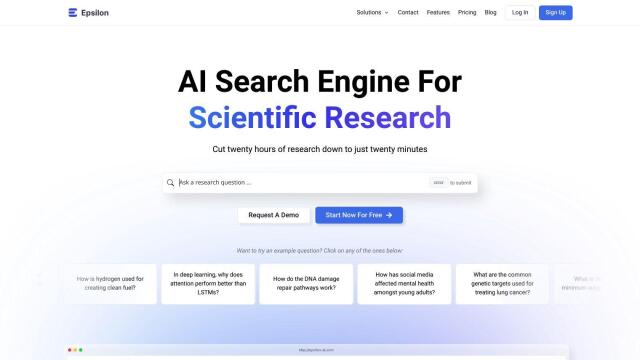
Epsilon
If you're looking for a Lumina alternative, Epsilon is a good option. It can speed up scientific discovery by rapidly finding relevant citations, summarizing information and synthesizing conclusions. With tools like Investigate for summarized answers, Search for organizing publications, Validate for assessing claims, and Synthesize for detailed summaries, Epsilon has a broad range of tools to help researchers. It's used by more than 30,000 researchers around the world and offers a range of pricing options for different needs.
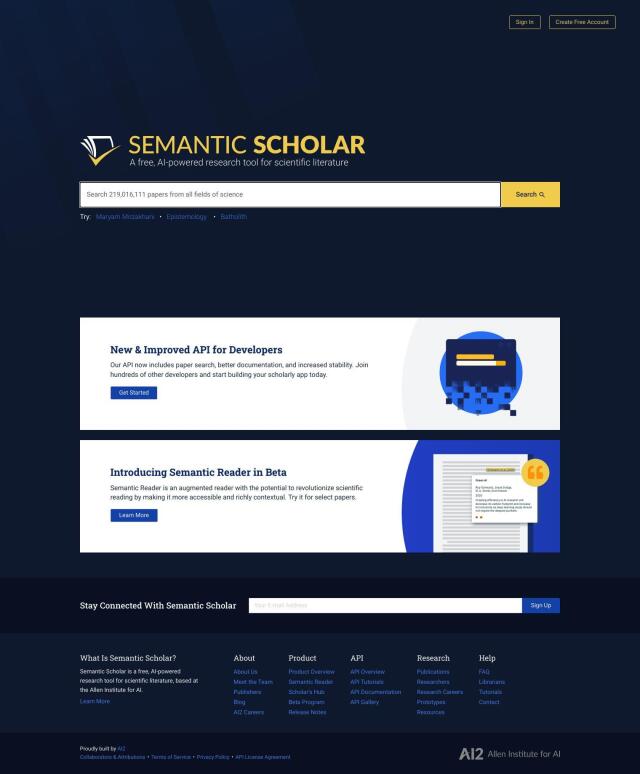
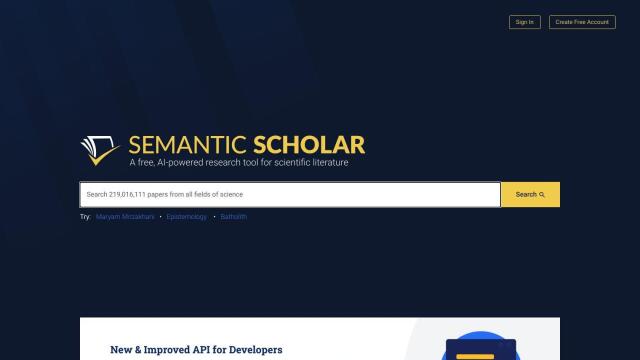
Semantic Scholar
Another good option is Semantic Scholar, a free AI-powered research service that lets scholars search for and read relevant scientific papers in a database of more than 219 million papers. It has powerful filters for journals, authors and date ranges, along with brief summaries (TLDRs) to help you evaluate papers. Semantic Scholar also offers tools for citing papers, organizing research and creating AI-powered feeds, so it's useful for researchers in many ways.

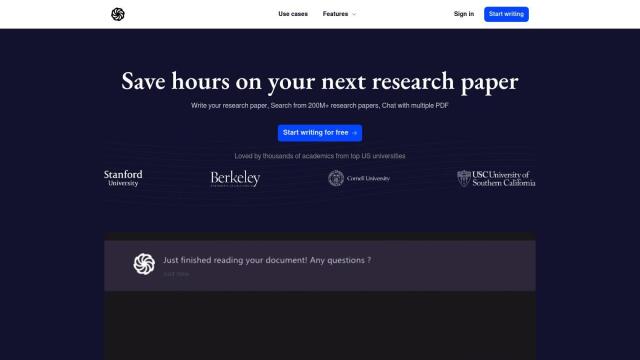
Doclime
Doclime is another option worth considering, especially if you need help with writing research papers. It can automate the process of finding relevant literature, extracting facts and writing the paper, which can dramatically accelerate your research. Doclime offers tools like a brainstorming tool, search function and AI writing assistant, so it can be a useful tool for academics who need to churn out high-quality research papers.

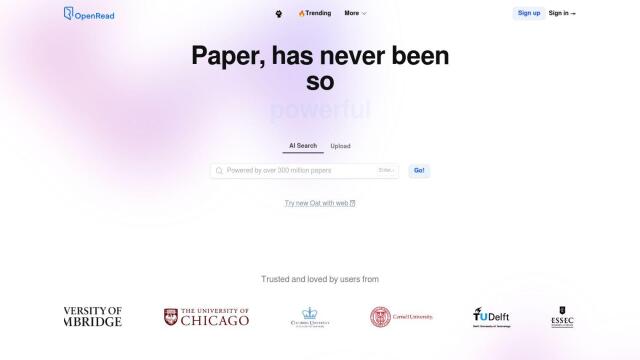
OpenRead
For a more integrated approach, OpenRead offers a powerful search experience with access to more than 300 million papers. Its suite of tools includes Paper Espresso for summarizing paper content, Paper Q&A for asking questions about papers, and a Related Paper Graph to see connections between papers. OpenRead also offers robust note-taking and organization tools so you can keep your insights alongside the papers they're based on.
